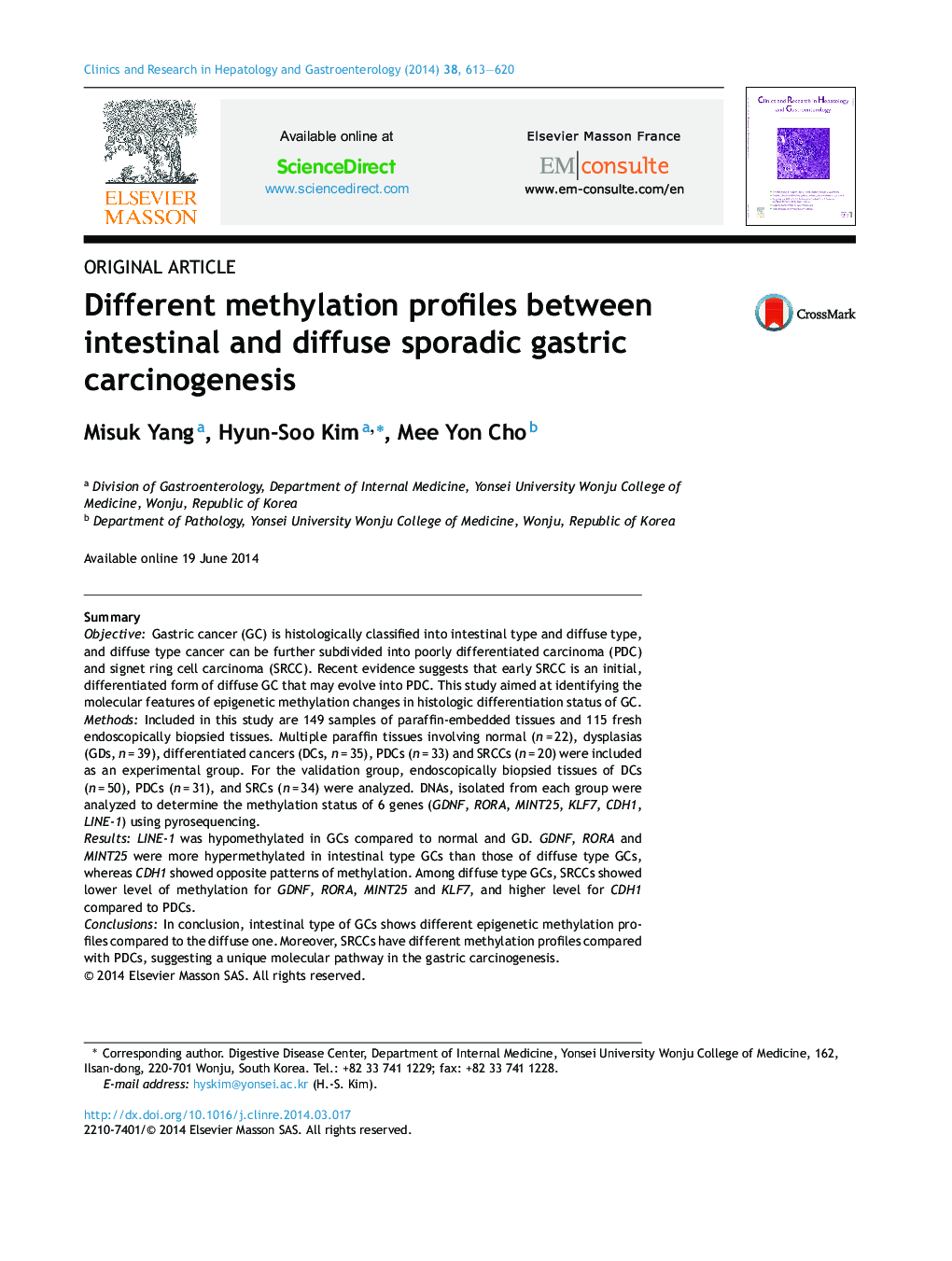| Article ID | Journal | Published Year | Pages | File Type |
|---|---|---|---|---|
| 3286446 | Clinics and Research in Hepatology and Gastroenterology | 2014 | 8 Pages |
SummaryObjectiveGastric cancer (GC) is histologically classified into intestinal type and diffuse type, and diffuse type cancer can be further subdivided into poorly differentiated carcinoma (PDC) and signet ring cell carcinoma (SRCC). Recent evidence suggests that early SRCC is an initial, differentiated form of diffuse GC that may evolve into PDC. This study aimed at identifying the molecular features of epigenetic methylation changes in histologic differentiation status of GC.MethodsIncluded in this study are 149 samples of paraffin-embedded tissues and 115 fresh endoscopically biopsied tissues. Multiple paraffin tissues involving normal (n = 22), dysplasias (GDs, n = 39), differentiated cancers (DCs, n = 35), PDCs (n = 33) and SRCCs (n = 20) were included as an experimental group. For the validation group, endoscopically biopsied tissues of DCs (n = 50), PDCs (n = 31), and SRCs (n = 34) were analyzed. DNAs, isolated from each group were analyzed to determine the methylation status of 6 genes (GDNF, RORA, MINT25, KLF7, CDH1, LINE-1) using pyrosequencing.ResultsLINE-1 was hypomethylated in GCs compared to normal and GD. GDNF, RORA and MINT25 were more hypermethylated in intestinal type GCs than those of diffuse type GCs, whereas CDH1 showed opposite patterns of methylation. Among diffuse type GCs, SRCCs showed lower level of methylation for GDNF, RORA, MINT25 and KLF7, and higher level for CDH1 compared to PDCs.ConclusionsIn conclusion, intestinal type of GCs shows different epigenetic methylation profiles compared to the diffuse one. Moreover, SRCCs have different methylation profiles compared with PDCs, suggesting a unique molecular pathway in the gastric carcinogenesis.
